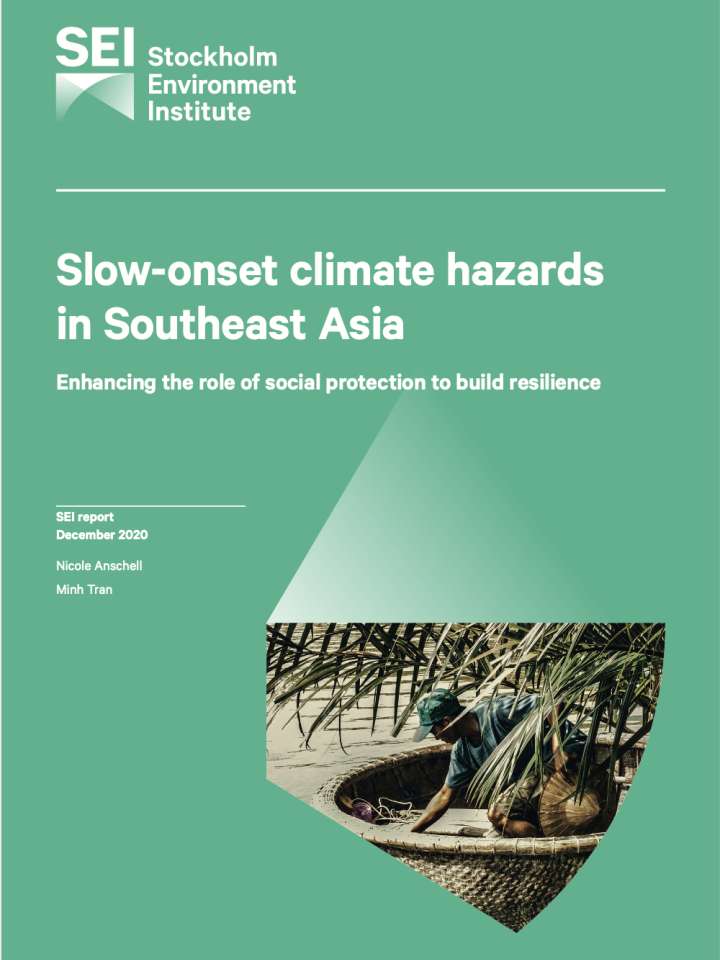Slow-onset climate hazards in Southeast Asia: Enhancing the role of social protection to build resilience
This report focuses on the potential role of social protection mechanisms in building resilience to slow-onset climate change impacts, with special attention to how social protection can support transformation for resilience-building, adaptation and disaster risk reduction (DRR). Social protection generally aims to help the poorest and most vulnerable members of a society. It is also considered a key element of climate change action and DRR and plays a critical part in disaster recovery efforts. At the same time, the viability of social protection itself may be imperilled by climate change and disasters.
The report addresses five key messages:
- The adverse effects of climate change, including slow-onset hazards such as sea-level rise, pose significant risks to humans, communities and livelihoods across the globe. Though sudden-onset events such as typhoons draw more attention, slow-onset hazards can have severe long-term impacts on human and natural systems alike.
- Sea-level rise is a particular concern for Asia, where more than 100 million people live in coastal areas. Sea-level rise not only exacerbates storm surge risks, but can also lead to displacement, saltwater intrusion that affects freshwater supplies and agriculture, floods, coastal erosion, and risks to livelihoods, food security and human health.
- Social protection mechanisms have been used for decades to reduce poverty and vulnerability, and they are increasingly used after disasters and in anticipation of climate change impacts. However, their potential for building long-term resilience and supporting adaptation, including to slow-onset hazards, is not being fully utilised.
- Tailoring social protection to slow-onset hazards such as sea-level rise offers a unique opportunity for these measures to be truly transformative. Because these hazards manifest gradually, there is time to drive structural changes that would not be practical in the context of sudden-onset events.
- Several knowledge gaps need to be addressed to inform the effective use of social protection to support adaptation in coastal communities, including when interventions might be most effective in addressing slow-onset hazards; specific needs related to sea-level rise and to urban settings; and how best to realise the transformative potential of social protection in these contexts.
Explore further
